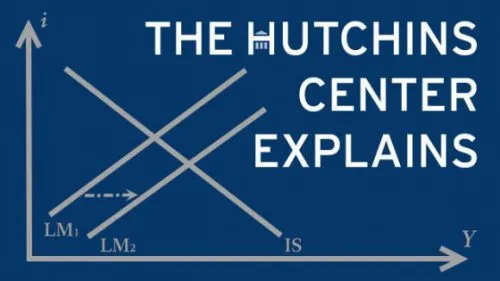The question of whether the central bank should aim for zero inflation is a complex one that requires considering the trade-offs and potential consequences of such a policy. On the one hand, zero inflation has certain benefits, including providing a stable price environment that can encourage long-term planning and investment. On the other hand, there are also potential drawbacks to zero inflation, including the possibility of deflation and the difficulty of achieving and maintaining it.
One argument in favor of zero inflation is that it can provide a stable price environment that can encourage long-term planning and investment. When prices are expected to remain stable over time, individuals and businesses can make decisions with greater confidence, knowing that the purchasing power of their money will not be eroded by unexpected inflation. This can lead to increased economic activity and growth, as people are more willing to take on debt and invest in long-term projects.
Additionally, zero inflation can also help to reduce uncertainty and volatility in financial markets. When prices are stable, it becomes easier for investors to anticipate future returns and make informed decisions about where to allocate their capital. This can lead to more efficient and productive use of resources, as well as lower borrowing costs for businesses and households.
However, there are also potential drawbacks to zero inflation. One concern is the possibility of deflation, which is a sustained period of falling prices. Deflation can be problematic because it can lead to a downward spiral of falling demand and economic activity. When prices are falling, consumers may postpone purchases in the hope of getting a better deal in the future, which can lead to a decline in demand and, in turn, further price declines. This can lead to a deflationary cycle that can be difficult to break and can have negative consequences for the economy.
Another potential concern with zero inflation is the difficulty of achieving and maintaining it. The central bank typically has limited tools at its disposal to influence the overall level of prices in the economy, and it can be challenging to achieve and maintain a consistent level of zero inflation. This can be especially true in times of economic stress or disruption, when the central bank may need to take more aggressive action to stabilize the economy, potentially leading to higher inflation.
In conclusion, the question of whether the central bank should aim for zero inflation is a complex one that requires considering the trade-offs and potential consequences of such a policy. While zero inflation can provide a stable price environment that can encourage long-term planning and investment, there are also potential drawbacks, including the possibility of deflation and the difficulty of achieving and maintaining it. Ultimately, the best approach will depend on the specific economic and financial conditions facing a given country and the goals of its central bank.

:quality(100)/cloudfront-us-east-1.images.arcpublishing.com/thesummit/HYJ4VXQ4TBFDHFYIX264UXAQ6U.jpg)


:max_bytes(150000):strip_icc()/inflation_final-8652eb79d80348f49810849af466bb44.png)

.jpg)